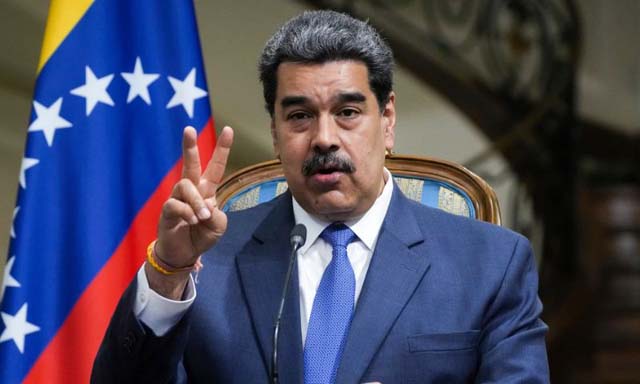
CARACAS, March 16, 2024 (BSS/AFP) - Venezuela's President Nicolas Maduro is expected to confirm Saturday that he will seek a third term in July 28 elections after 11 years in office marked by sanctions, economic collapse and accusations of widespread repression.
The ruling PSUV has said it will officially announce its candidate Saturday for elections from which Maduro's main rival -- the favorite in opinion polls -- has been excluded.
There had been no challenge to 61-year-old Maduro within the "Chavista" movement, in power for 25 years and named for the president's popular predecessor Hugo Chavez.
Since 2013, Maduro has presided over severe economic crisis, worsened by US sanctions, that has seen seven million people flee the country as GDP plummeted by 80 percent in a decade.
"I know that we have had it hard... but what will come, from now to 2030, is progress," Maduro vowed this week at a political rally in Carupano in Venezuela's east.
Maduro has held on to power through a system of political patronage, and with backing from the military, and three key foreign allies: Cuba, Russia and China. He has consolidated power over parliament, the judiciary and other state institutions, while jailing and neutralizing critics and challengers.
Opposition leader Maria Corina Machado, who polls show would beat the incumbent in a fair race, has been disqualified by Maduro-aligned courts on charges of corruption widely dismissed as spurious, and for supporting Western sanctions against the regime.
She cannot hold public office for 15 years, nor can the man widely seen as her natural replacement, two-time presidential candidate Henrique Capriles.
- 'One day at a time' -
Maduro's re-election to a second six-year term in 2018 -- widely considered fraudulent -- was not recognized by the United States and dozens of other nations, and was met with a string of sanctions.
Many countries instead recognized parliamentary leader Juan Guaido as interim president.
Yet Maduro remains firmly in charge of oil-rich Venezuela after his rival's government imploded and the war in Ukraine choked energy supplies and shifted global priorities.
After the government and the opposition agreed in Barbados last year to hold a free and fair vote in 2024 with international observers present, the United States eased sanctions to allow Chevron to resume limited crude extraction.
But Washington is mulling reinstating penalties since the Maduro-aligned Supreme Court upheld Machado's disqualification.
In January, Maduro said the Barbados agreement was "mortally wounded" after government authorities claimed to have foiled numerous US-backed plots to assassinate him.
The CNE electoral council has said it would invite election observers from the European Union and United Nations, the US-based Carter Center NGO, BRICS and the African Union, among others, though no official invitations have been sent.
In a sign of things to come, Maduro has increased his public appearances ahead of the electoral campaign period that only officially opens on July 4, promising a crisis-weary electorate everything from mattresses and shoes to building materials.
Machado, 56, has refused to bow out, for now, despite appearing to have little chance of overcoming the hurdles the state has placed in her way.
"One day at a time," she said on a tour of the Carabobo state this week, where she was met by hundreds of avid supporters who refer to her as Venezuela's "iron lady."
Analysts say that unless Machado's disqualification is somehow overturned, the opposition coalition may have to pick a substitute candidate -- from among those not yet barred by the state.
The opposition could also call for an election boycott as it had in 2018.